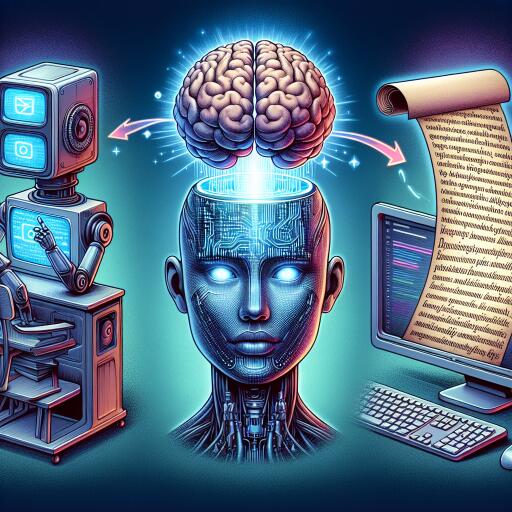Revolutionizing Conversations: AI Enhancements and Innovations Unleashed
The landscape of artificial intelligence (AI) is undergoing transformative upgrades and introductions that are set to redefine our interaction with technology. Among the most noteworthy developments, ChatGPT emerges with a significant memory enhancement, promising an end to its previous forgetfulness and setting a new standard for interactive digital assistants.
OpenAI has engineered a solution for ChatGPT that involves a dynamic memory capability, empowering the AI to retain personal details, preferences, and context over extended conversations. This feature enables ChatGPT to adapt and provide more personalized interactions over time. Users can now explicitly instruct the chatbot to remember specific pieces of information, or it can autonomously learn from the context of prior exchanges. The introduction of persistent memory bridges a gap in AI conversations, fostering a more intuitive and engaging user experience.
Simultaneously, OpenAI has introduced Sora, a groundbreaking tool that generates videos from textual prompts. This technology, considered an evolution from the capabilities of Dall-E 3, allows the creation of up to one-minute-long videos, promising a revolutionary leap for the media landscape, social media, and personal communication.
On another front, NVIDIA has unveiled a local AI chatbot, “Chat with RTX,” which presents an avant-garde approach to data security and personalized responses. This tool operates directly on users’ personal computers, analyzing stored files to generate responses without sending data to the cloud. While it necessitates NVIDIA GPUs and is currently in demo form—hence prone to limitations and bugs—it represents a significant step towards integrating AI into personal data analysis and research.
In the realm of legal and intellectual disputes, a recent court ruling in California has mostly favored OpenAI against allegations from authors accusing the organization of copyright infringement. This decision, coupled with a United States Patent and Trademark Office (USPTO) ruling that AI cannot hold patents, delineates the burgeoning tension and clarification needed in the intersection of AI and intellectual property rights.
Amidst advancements, the reception of new technologies also faces scrutiny. Meta’s introduction of Ray Ban audio smart glasses piqued interest as a sleeper hit, contrasting the lukewarm reception of other technologies by consumers. For instance, Ubisoft’s CEO has voiced disappointments over the performance of VR titles, signaling a cautious stance towards further investments in VR technology. Additionally, early feedback on Apple’s Vision Pro headsets highlights challenges, including issues with weight and motion sickness, though the device represents a significant stride in VR development.
The continuing evolution of AI and VR technologies underscores a pivotal moment in tech, blending creativity with practicality, and pushing the boundaries of traditional digital interaction. As these technologies evolve, they promise not only to enhance our digital experiences but also to challenge our perceptions of the intersection between the virtual and the real, marking an exciting era for users and developers alike.









